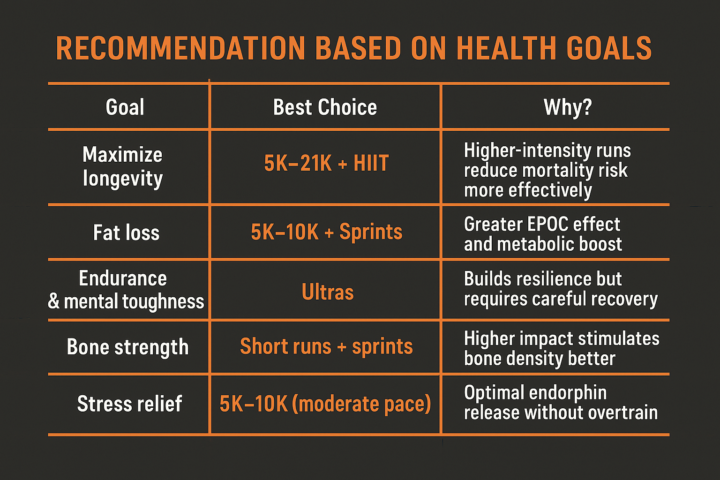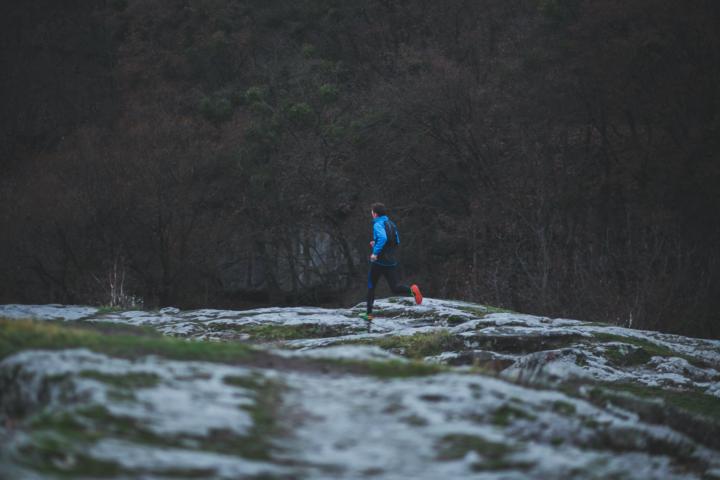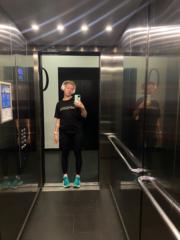
Write something
Question of the week
I'm starting a new column. Every week I will ask questions and you will try to answer and hypothesize. In this way we will develop critical thinking and talk about lean issues 🤔🤓 And you can do it too! 💬 ( Just make a post) So, today's question: We’re not the fastest, strongest, or fiercest species… but humans have one physical advantage no other animal on Earth can compete with us. What is it?

Ultras Vs. Long Distance running
📜Long-distance running, or endurance running, is a form of continuous running over distances of at least 3 km (1.9 mi) Did you know that? You don't have to run an ultra or a marathon to name yourself long- distance runner. 🌄 So what I want to talk about is the benefits of different running disciplines for our health, fitness and longevity. If you are thinking about running as a tool to improve these, I have put together some facts to help you. 💭 Cardiovascular & Longevity Benefits 💖 Shorter Distances (5K–21K) - Improves VO₂ max through speedwork, intervals, and tempo runs. - Boosts heart efficiency via high-intensity bursts. - Promotes stronger cardiovascular adaptation in less time. Ultra-Running: - Builds aerobic endurance over long durations. - Caution: Prolonged running may increase oxidative stress and cardiac strain in some, though research varies. - Less effective for VO₂ max improvement than speed-focused training. 🔥 Metabolic & Weight Management Shorter Distances (5K–21K) - HIIT and tempo runs trigger EPOC (afterburn), burning more calories after the workout. - More effective for fat loss due to higher intensity and hormonal response. - Boosts insulin sensitivity and metabolic rate. Ultra Running - Promotes fat oxidation as the primary fuel source. - Improves metabolic flexibility, especially in fasted or low-carb states. - ⚠️ May elevate cortisol (stress hormone) if recovery isn’t sufficient, which can hinder weight loss and cause fatigue. 🦴 3. Musculoskeletal & Injury Risk Shorter Distances (5K–21K) - Lower risk of injury due to less repetition and impact. - Speedwork (like hill sprints) applies bone-loading stress, stimulating bone density (Wolff’s Law). - Good for long-term joint health if done with proper form. Ultra Running - Higher risk of overuse injuries (e.g., tendinitis, stress fractures) due to long, repetitive impact. - Common strain points: knees, hips, feet. - Well-trained ultra-runners often adapt, but recovery and conditioning are crucial.

Restless legs after a long run?
Maybe I am weird, but my legs don't seem to want to stop moving after my long runs. I did 26 miles on Saturday. It was a slow but comfortable run. Of course, I was exhausted by the time I was finished. But when I sat down to relax, my legs just wanted to fidget. I had a hard time sitting still. Even in bed that night, I just want to kick my legs. I have noticed this after other long runs in the past. Is this normal?

Why Is It So Hard to Stick to Running (Or Any Sport)? Neuroscience Explains
We all know running is great for us—better health, more energy, improved mood. Yet, so many of us struggle to stay consistent. Why? The Neuroscience of Motivation (And Why Our Brains Resist Exercise)🏋️♀️ 👉Our Brain Prefers Instant Rewards Over Long-Term Gains - Evolution wired us to seek immediate pleasure and avoid unnecessary effort. - Running pays off later (fitness, endurance), but the brain wants dopamine now. - If a workout feels like a chore, the brain will resist it. 👉Dopamine & Habit Formation - Dopamine (the motivation hormone) spikes when we anticipate a reward, not just when we achieve it. - If running feels boring or painful, the brain won’t crave it. - But if we associate it with something enjoyable (music, friends, post-run endorphins), the brain starts linking it with pleasure. 👉Our Brain Demands a 2.7x Reward-to-Effort Ratio.Research shows we’re only motivated to start a new habit (like running) if the perceived gain is at least 2.7 times higher than the effort/risk (Neuroscience of Behavioral Change) ✅ Pair Running With Immediate Pleasure - Listen to your favorite podcast only while running. - Reward yourself after with something small but enjoyable (a smoothie, hot bath ) - Pay attention to the post-run clarity, reduced stress, or sense of accomplishment—your brain will start craving it. - Track progress (apps, journals) to get mini dopamine hits from small wins. ✅ Leverage Social Triggers - Group runs release oxytocin (bonding hormone) and endorphins, making effort feel easier. - Friendly competition? Dopamine doubles down. ✅ Prime Your Brain for the 2.7x Win - After each run, mentally replay the best part (e.g., sunset views, post-run endorphins).Over time, your brain will overweight the rewards and underestimate the effort. So find what makes running enjoyable right now—not just in the future. 🎯 Personally I love both running and being in the gym. I think I simply paired exercising with pleasure some long time ago. But I also have seen people who hated running/ gym etc until they had found their own way to enjoy the process.
7
0

🏃♂️ Long Runs
In professional sports, there are cases where long training runs of 45-50 km improved a marathon runner's personal record by almost 10 minutes! While this doesn’t mean you should immediately start running 45 km, a long Sunday run can indeed be very beneficial. What is a Long Run? 🏃♀️💨 A long run is any training session that lasts 1.5 hours or more. It’s not just for marathoners—it’s important for runners of all levels! Why Do We Need Long Runs?📊 Long runs aren’t just about logging miles. They help: - Increases mitochondria and capillaries in muscle cells - Enhance cardiovascular efficiency - Greater glycogen storage in muscles and liver - Strengthened musculoskeletal system - Develop Fat Burning: Your body learns to use fat as a primary energy source, saving glycogen for when you really need it. - Aerobic Endurance: They improve your cardiovascular system, making you a more efficient runner. - Strengthen Your Mind: Long runs teach you to push through fatigue, monotony, and the urge to quit. - Build Character: They train perseverance, discipline, and mental toughness. How Much Should You Run?⏲️ Experienced coaches suggest that long-distance runs should make up 20-25% of your weekly mileage. For example: - If you run 60 km per week, aim for 12-15 km long runs. - If you run 120 km per week, aim for 25-30 km long runs. - For a half-marathon, aim for 18-20 km - For a marathon, the distance increases to 24-35 km Fueling Your Long Run 🧁🥑 - Before: Have a light breakfast to fuel your body. - During: For runs over 90 minutes, consider water or an isotonic drink to stay hydrated. - After: Refuel with carbs and protein within 30 minutes to kickstart recovery. Questions time : Have you tried incorporating long-distance runs into your training? If so, how has it impacted your endurance and confidence ❓ What’s your favorite way to make long runs more enjoyable (e.g., music, podcasts, running with friends)❓ What was your longest run in last 3 months ❓

1-30 of 38

skool.com/become-better-runner-4238
Welcome to Better Runner ! This is where runners of all levels achieve their goals.
Powered by





